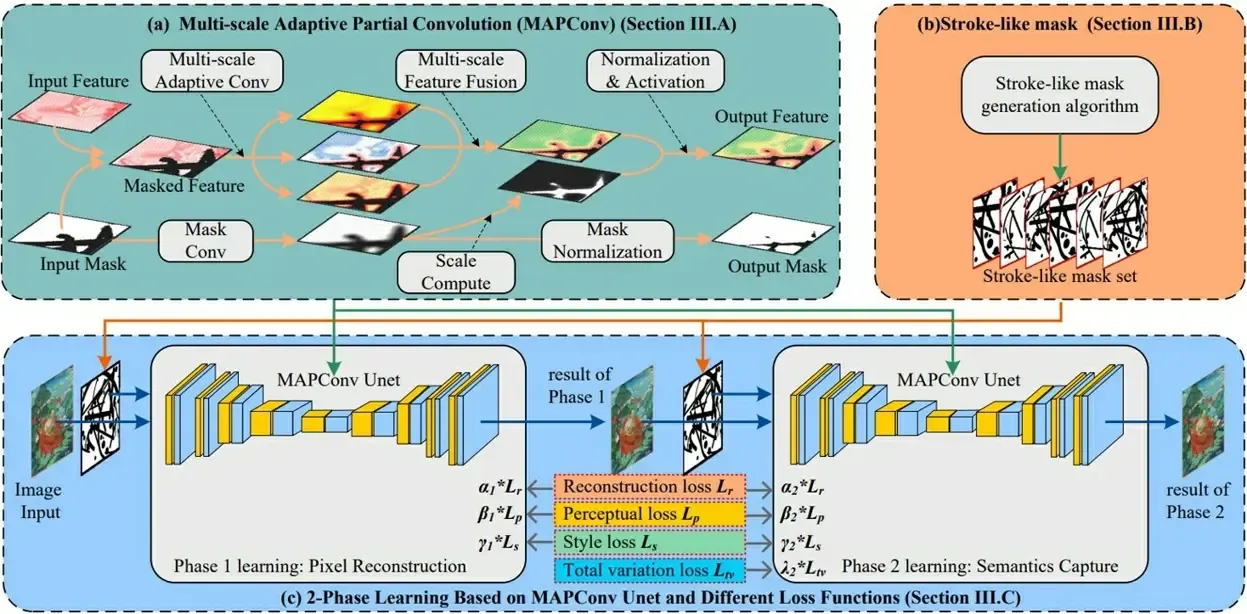Thanka Mural Inpainting Based on Multi-Scale Adaptive Partial Convolution and Stroke-Like Mask
Author(s):Wang, N., Wang, W., Hu, W.
Published In:IEEE Transactions on Image Processing, vol. 30, pp. 3720-3733, 2021
Keywords:Convolution , Feature extraction , Image restoration , Training , Kernel , Image reconstruction , Cultural differences , Image inpainting , Thanka restoration , multi-scale , partial convolution , mask generation
Cite:N. Wang, W. Wang, W. Hu, A. Fenster and S. Li, "Thanka Mural Inpainting Based on Multi-Scale Adaptive Partial Convolution and Stroke-Like Mask," in IEEE Transactions on Image Processing, vol. 30, pp. 3720-3733, 2021, doi: 10.1109/TIP.2021.3064268.
Thanka murals are important cultural heritages of Tibet, but many precious murals were damaged during history. Thanka mural restoration is very important for the protection of Tibetan cultural heritage. Partial convolution has great potential for Thanka mural restoration due to its outstanding performance for inpainting irregular holes. However, three challenges prevent the existing partial convolution-based methods from solving Thanka restoration problems:
- the features of multi-scale objects in Thanka murals cannot be extracted correctly because of single-scale partial convolution;
- the stroke-like Thanka inpainting mode cannot be effectively simulated and learned by existing rectangular or arbitrary masks;
- the original content of damaged Thanka murals cannot be restored.
To resolve these problems, we propose a Thanka mural inpainting method based on multi-scale adaptive partial convolution and stroke-like masks. The proposed method consists of three parts:
- a kernel-level multi-scale adaptive partial convolution (MAPConv) to accurately discriminate valid pixels from invalid pixels, and to extract the features of multi-scale objects;
- a parameter-configurable stroke-like mask generation method to simulate and learn the stroke-like Thanka inpainting mode; and
- a 2-phase learning framework based on MAPConv Unet and different loss functions to restore the original content of Thanka murals.
Experiments on both simulated and real damages of Thanka murals demonstrated that our approach works well on a small dataset (N=2780), generates realistic mural content, and restores the damaged Thanka murals with high speed (600 ms for multiple holes in 512×512 images). The proposed end-to-end method can be applied to other small datasets-based inpainting tasks.
